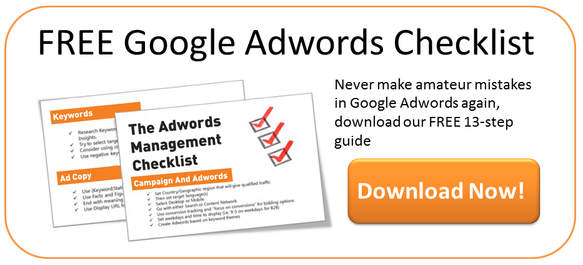What Is Google AdWords Quality Score And Why Does It Matter?
by Will Williamson on 03-Nov-2016 14:25:00
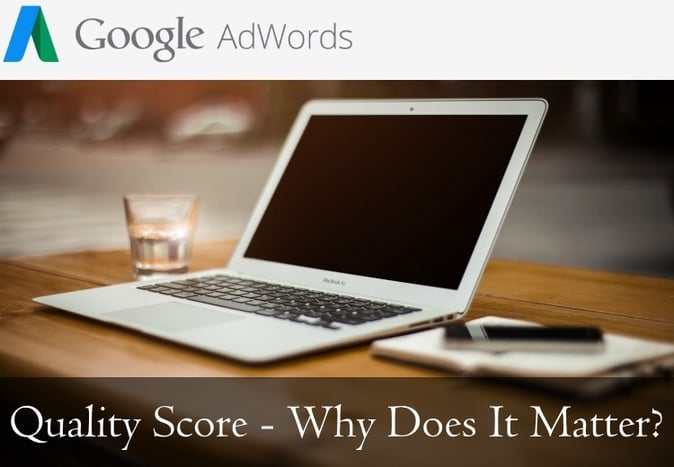
With Google AdWords, merely paying for an advert does not guarantee either prominence in the display rankings or a competitive cost per click (CPC). Where your advert ranks and how much you pay depends widely on your Quality Score (QS).
What Is AdWords Quality Score?
Quality Score is Google’s way of regulating the quality and relevance of pay per click adverts. A similar system is used by other PPC providers, such as Yahoo and Bing. Given as a figure between 1 and 10, with 10 being the best and 1 being the worst, QS determines which adverts have prominence in the paid results and how much users pay per click. As we will see below, high quality scores bring valuable benefits, whereas low scores burden users with expensive penalties.
How Is Quality Score Calculated?
Quality Score is a measure of two things: the relevance of the keyword both to the advert and your target market, and; the quality of your written copy and landing page. There are three main factors that affect quality score:
1) Keyword Click Through Rate (CTR)
Google calculates the current and historical CTR of your chosen keyword to help ensure it has relevance to people’s search queries. Keywords that have never had much traffic or those whose popularity has dropped have a lower QS than trending keywords. Local performance of keywords also affects QS. For example, if your chosen keyword has a high CTR in the USA but a poor CTR in the UK, your advert’s QS will be lower in Britain than if you are doing the same campaign in America. This is part of Google’s emphasis on local relevancy in its search results. Learn more about increasing Click Through Rate with this article - Google AdWords Split Testing - Increase Your CTR and Quality Scores.
2) Relevance Of Your Advert Copy
Your advert copy should directly relate to the keyword or it is not deemed to be relevant. ‘Irrelevant’ copy will negatively affect your Quality Score. It isn’t enough to just include your keyword in the advert copy, although this is essential. You should also include variants and negative versions of your keyword in the advert copy to boost relevancy. We will cover the importance of negative keywords in an upcoming blog post.
3) Quality & Relevance Of Your Landing Page
The web page your advert clicks through to is your ‘landing page’. This can be a pre-existing page of your website or a purpose built page. The important thing from Google’s perspective is that the landing page is explicitly relevant to your advert. Adverts that direct to website homepages or blogs therefore have a lower Quality Score because these pages are often optimised for multiple keywords. Specific landing pages with tightly targeted copy perform better in terms of QS. The loading speed of your landing page will also affect QS, with penalties given for slower pages. Get more conversions from your AdWords landing pages by reading this article - How To Increase Conversions From A Google AdWords Landing Page.
How AdWords Quality Score Affects Cost Per Click
Higher Quality Scores are awarded by Google with discounts of up to 50%, while lower quality adverts have prices hiked by up to 400%. Ouch! Here is a summary of the current discounts and penalties:
- QS 10: 50% discount
- QS 9: 44.2% discount
- QS 8: 37.5% discount
- QS 7: 28.6% discount
- QS 6: 16.7% CPC increase
- QS 5: No discount or penalty. This is the Google benchmark.
- QS 4: 25% penalty
- QS 3: 67.3% penalty
- QS 2: 150% penalty
- QS 1: 400% penalty
Using a hypothetical example, let’s say keyword X has a CPC of £2.50 at the Google benchmark of QS 5. If you can increase your QS to 9 you will pay a discounted rate of £1.39 per click, a generous saving. If on the other hand you completely let yourself go and your Quality Score slips down to 1, the same advert will cost you a sizeable £12.50 for every click.
At the same time, higher QS adverts will be given preference on the page over lower QS competitors and they will appear more frequently. There is therefore a direct correlation between higher QS and a higher number of clicks.
It should now be obvious why QS is so important. In our example, the user with the QS 1 advert will be paying more than six times as much as their competitor with a QS 9 advert, as well as getting fewer clicks. It is therefore essential that you take active steps to keep your AdWords Quality Score high in order to get the best results from your PPC campaign.
Making Sense Of Google AdWords
Google AdWords is an effective form of advertising that can yield a great ROI for your business, but it needs to be approached in the correct way for it to have the best results. To check the performance of your campaign, download our free Google AdWords Checklist today. The checklist contains all you need to know to get your PPC campaign started on the right foot and maintain a high quality score. Click here to claim your copy.
- Inbound Marketing (SEO, PPC, Social Media, Video) (831)
- Strategy (368)
- Sales & CRM (197)
- Marketing Automation & Email Marketing (190)
- Business Growth (168)
- Website Design (162)
- Hubspot (141)
- Lead Generation (117)
- Google Adwords (100)
- Content Marketing (94)
- Conversion (53)
- Case Studies (49)
- News (47)
- Ecommerce (39)
- Webinars (34)
- SEO (26)
- AI (20)
- Events (19)
- LinkedIn Advertising (17)
- Video (17)
- Video Selling (15)
- Software training (13)
- Niche business marketing (11)
- The Digital Prosperity Podcast (10)
- HubSpot Case Studies (7)
- Facebook Advertising (6)
- Web Design Case Studies (1)
- February 2026 (2)
- January 2026 (12)
- December 2025 (15)
- November 2025 (6)
- October 2025 (17)
- September 2025 (16)
- August 2025 (14)
- July 2025 (14)
- June 2025 (5)
- May 2025 (19)
- April 2025 (15)
- March 2025 (13)
- February 2025 (13)
- January 2025 (8)
- December 2024 (2)
- November 2024 (4)
- October 2024 (21)
- September 2024 (4)
- August 2024 (8)
- July 2024 (14)
- June 2024 (16)
- May 2024 (25)
- April 2024 (15)
- March 2024 (18)
- February 2024 (5)
- January 2024 (10)
- December 2023 (6)
- November 2023 (10)
- October 2023 (13)
- September 2023 (12)
- August 2023 (14)
- July 2023 (13)
- June 2023 (14)
- May 2023 (15)
- April 2023 (13)
- March 2023 (14)
- February 2023 (13)
- January 2023 (15)
- December 2022 (13)
- November 2022 (6)
- October 2022 (8)
- September 2022 (22)
- August 2022 (15)
- July 2022 (13)
- June 2022 (16)
- May 2022 (14)
- April 2022 (16)
- March 2022 (17)
- February 2022 (11)
- January 2022 (8)
- December 2021 (6)
- November 2021 (7)
- October 2021 (11)
- September 2021 (10)
- August 2021 (7)
- July 2021 (7)
- June 2021 (4)
- May 2021 (4)
- April 2021 (1)
- March 2021 (3)
- February 2021 (5)
- January 2021 (4)
- December 2020 (7)
- November 2020 (6)
- October 2020 (5)
- September 2020 (9)
- August 2020 (18)
- July 2020 (17)
- June 2020 (17)
- May 2020 (10)
- April 2020 (21)
- March 2020 (24)
- February 2020 (21)
- January 2020 (12)
- December 2019 (23)
- November 2019 (12)
- October 2019 (14)
- September 2019 (16)
- August 2019 (15)
- July 2019 (13)
- June 2019 (6)
- May 2019 (8)
- April 2019 (4)
- March 2019 (2)
- February 2019 (2)
- January 2019 (2)
- December 2018 (3)
- November 2018 (24)
- September 2018 (11)
- August 2018 (9)
- June 2018 (3)
- May 2018 (6)
- April 2018 (14)
- March 2018 (12)
- February 2018 (16)
- January 2018 (15)
- December 2017 (15)
- November 2017 (18)
- October 2017 (23)
- September 2017 (19)
- August 2017 (28)
- July 2017 (27)
- June 2017 (25)
- May 2017 (18)
- April 2017 (17)
- March 2017 (16)
- February 2017 (17)
- January 2017 (14)
- December 2016 (21)
- November 2016 (27)
- October 2016 (25)
- September 2016 (16)
- August 2016 (20)
- July 2016 (19)
- June 2016 (14)
- May 2016 (20)
- April 2016 (24)
- March 2016 (22)
- February 2016 (28)
- January 2016 (27)
- December 2015 (28)
- November 2015 (19)
- October 2015 (9)
- September 2015 (12)
- August 2015 (5)
- July 2015 (1)
- June 2015 (10)
- May 2015 (3)
- April 2015 (11)
- March 2015 (14)
- February 2015 (15)
- January 2015 (12)
- December 2014 (2)
- November 2014 (23)
- October 2014 (2)
- September 2014 (2)
- August 2014 (2)
- July 2014 (2)
- June 2014 (7)
- May 2014 (14)
- April 2014 (14)
- March 2014 (7)
- February 2014 (2)
- January 2014 (7)
- December 2013 (9)
- November 2013 (14)
- October 2013 (17)
- September 2013 (3)
- August 2013 (6)
- July 2013 (8)
- June 2013 (4)
- May 2013 (3)
- April 2013 (6)
- March 2013 (6)
- February 2013 (7)
- January 2013 (5)
- December 2012 (3)
- November 2012 (2)
- September 2012 (1)
Subscribe by email
You May Also Like
These Related Blogs
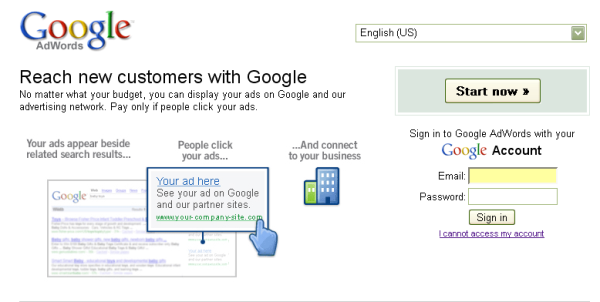
What Does Google Adwords (Pay Per Click) Cost? The Main Factors...
As a business owner who is already interested in setting up a Google Adwords/PPC (Pay Per Click) campaign, you might already be aware of the great ben …
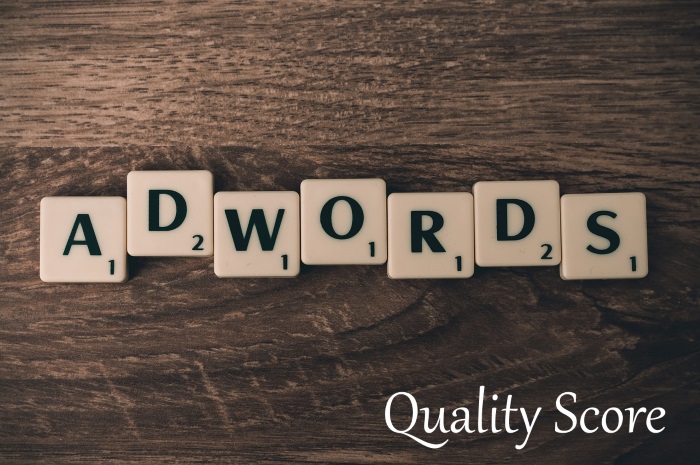
What Is Quality Score In Google AdWords?
Quality score is Google’s rating of both the quality and relevance of your keywords and pay-per-click (PPC) ads. This is then used in determining your …
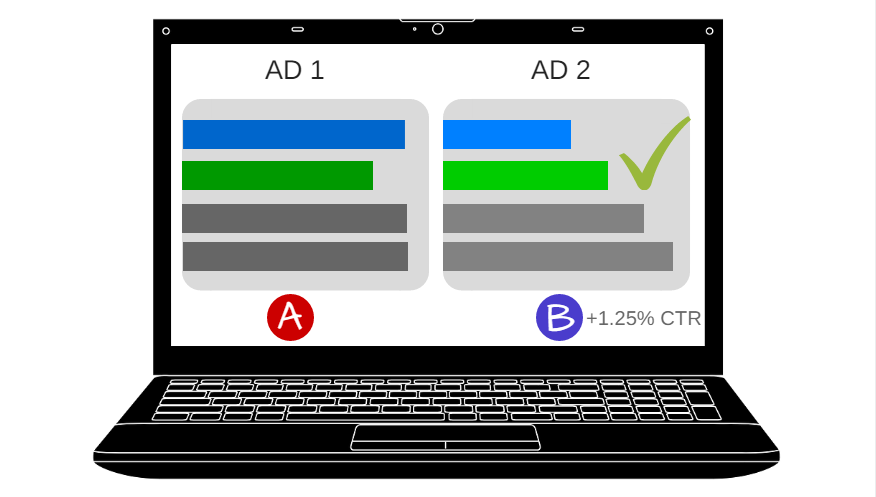
Google AdWords Split Testing - Increase Your CTR and Quality Scores
Business marketing directors can quickly get set up on Google AdWords, but just running an advertising campaign is not the same as running an effectiv …



